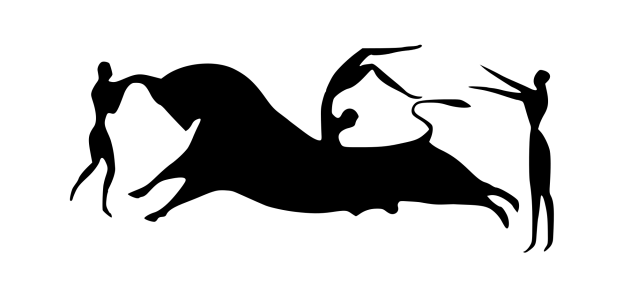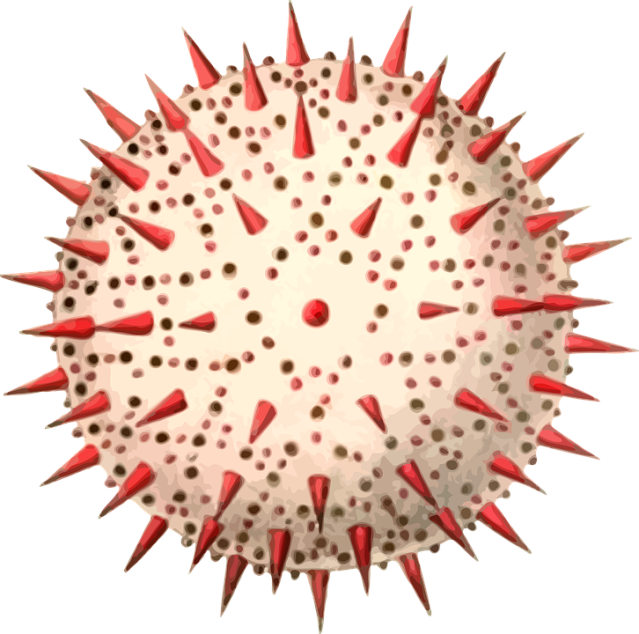
I’m in a modified “bull-leaping” state today. I’m getting ready for an extended trip with my partner, and she’s not doing well – physically, emotionally, or cognitively. She’s intensely anxious about the trip, where she’ll be speaking at an international conference. It’s a great opportunity, but with over 5,000 people there… yeah… it’s overwhelming.
So, there’s that dread/excitement.
And then there’s her physical health, which is not good. She doesn’t exercise. She sleeps a lot. And she spends most of her waking hours in bed looking at Facebook. She’s got mobility issues from arthritis and sheer inactivity. Muscle atrophy and all that. And she’s intensely allergic to, well, just about everything.
And then there’s the emotional piece. She’s all over the map. Cognitively, she’s been declining over the past few years, and with that comes amped-up emotions. Lots of fear. Sadness. Frustration. The whole nine yards.
So, it’s become increasingly challenging to live with her, deal with her ups and downs, and also handle all of the extra work of literally taking care of her. As the years pass, she’s less and less able to take care of herself, which I haven’t exactly helped because of my own rigidity. If she does things “wrong”, I have a tendency to flip out, and that keeps her from doing what she needs to do (even if I think it’s wrong – and, for the record, it is).
Autism has not helped us, in this respect. And as time goes by, and she’s increasingly dependent on me for so much, I feel the sting of my own Autism even more. It’s impairing, at times, this way I am. And just trying to keep up with everything – including increased business trips – really strains my patience and my endurance.
I’m a workhorse, though. I put my head down and soldier through. I make it happen. Because I can’t see any other way. And I might as well get used to this, because I’ve promised her I will never, ever put her in a home. And I won’t. People tell me I’ll reconsider that, on down the line, especially since she’s considerably older than me, and just when things are starting to fall apart for her, they’re starting to come together for me, according to mainstream standards.
But I can work around this. I can work with it. I don’t have to be flying all across the country to seek my fortune, like others expect me to. I don’t even want to do it, to be honest. I’d rather just stay home and work on my own stuff and spend time with my sweet partner.
It still gets to me, though, how limited support systems are for people like me. Those of us who have a unique constellation of qualities that make living in the world-as-it-is extremely taxing, and who have specific needs that aren’t typically addressed by the usual offerings… well, we’re kind of out of luck, in many respects. If we’re “too functional”, we get accused of just wanting attention. If we’re really impaired, we get our agency taken away and we’re treated like wards of society. If we’re on-again-off-again, we can’t really ask for help, because while we may need help one day, we may not need that the next.
It’s so frustrating. It’s maddening. Sometimes I just need help, but people’s own issues get in the way of them being able to be genuinely helpful.
Either they feel all sorts of pity for me, because I’m “impaired”.
Or they feel disdain, because I can’t do for myself.
Or they take it all in, watch closely, and then go talk to other people about me. That’s not helpful at all.
Gossip. Anxiety. Fear of perceived weakness. Total inability to treat others with dignity and respect, unless they’re just like them.
It’s worst with my family. Both sides are a problem. My family is a problem, because they love to gossip and judge and they don’t get the variable abilities thing (even though they’re so Autistic, it’s scary). My partner’s side of the family is so judgmental and they don’t treat her well. They make fun of her. They act like it’s the end of the world, if she just can’t keep up with everyone. They’re so busy going a million miles an hour – to where, I don’t know, because ultimately, they just end up back on the couch watching endlessly mind-numbing television – and if you don’t keep up!!!, well, there must be something wrong with you.
It makes us not want to be around any of them. Which is why we probably won’t make the godawful marathon trip to see them over Thanksgiving and/or Christmas.
People. Hrmph.
But I digress. The first task at hand is to finish all the errands in preparation for the trip, get my partner up early enough that she has time to take care of herself, pack, and make sure we have everything we need in the van. I’ve got the battery for her power scooter charged, and that’s good to go. I really do need to develop better systems for taking care of both of us. I’ve been resisting doing that, because it feels like capitulation. But screw it. I’ve gotta come up with some reliable supports for myself and make sure I’m up to the years ahead — however many those will be.
Caretakers often have their lives cut shorter because of the stress of caretaking. But I can’t let that happen to me. Somehow, someway, there’s got to be a way to engineer this properly.
And so I’ll do that. Through logic. Reason. Perseverance. And all the faculties I have at my disposal, which are many and various.
Main thing is to get enough sleep. If that doesn’t happen, everything falls down.
But enough of that. It’s time to kick this machine into gear and motor into the fray.


 I’m sitting here feeling sorry for myself again. I’ve been reflecting on my life a lot, lately, thinking about how my life has gone… thinking about how it could have gone differently… thinking about what could have been done, if I’d just known about being Autistic.
I’m sitting here feeling sorry for myself again. I’ve been reflecting on my life a lot, lately, thinking about how my life has gone… thinking about how it could have gone differently… thinking about what could have been done, if I’d just known about being Autistic. That was the operative question for me about 10 years ago. Or rather, it should have been the operative question, but I was so overwhelmed with my life and my body’s changes, that I couldn’t think clearly about being Autistic.
That was the operative question for me about 10 years ago. Or rather, it should have been the operative question, but I was so overwhelmed with my life and my body’s changes, that I couldn’t think clearly about being Autistic. Over at
Over at  The Meh-nopausal action continues… And while it might not seem all that exciting, just you wait… 😉
The Meh-nopausal action continues… And while it might not seem all that exciting, just you wait… 😉 If there’s one thing that frays my last nerve, it’s talking about women’s health solely in terms of reproduction. Not all of us choose to have kids, and even the ones who do, are more than the sum of their offspring. Classifying our hormonal and female-specific well-being under “reproduction”, to my mind, reduces us to vessels for the emergence of the future human race.
If there’s one thing that frays my last nerve, it’s talking about women’s health solely in terms of reproduction. Not all of us choose to have kids, and even the ones who do, are more than the sum of their offspring. Classifying our hormonal and female-specific well-being under “reproduction”, to my mind, reduces us to vessels for the emergence of the future human race.

